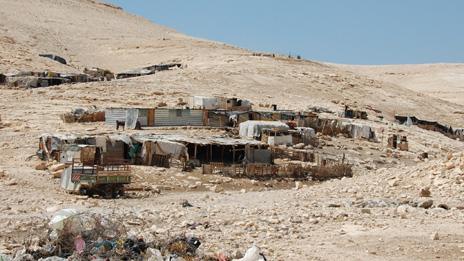Khan al-Ahmar: Israel court approves demolition of Bedouin village
- Published
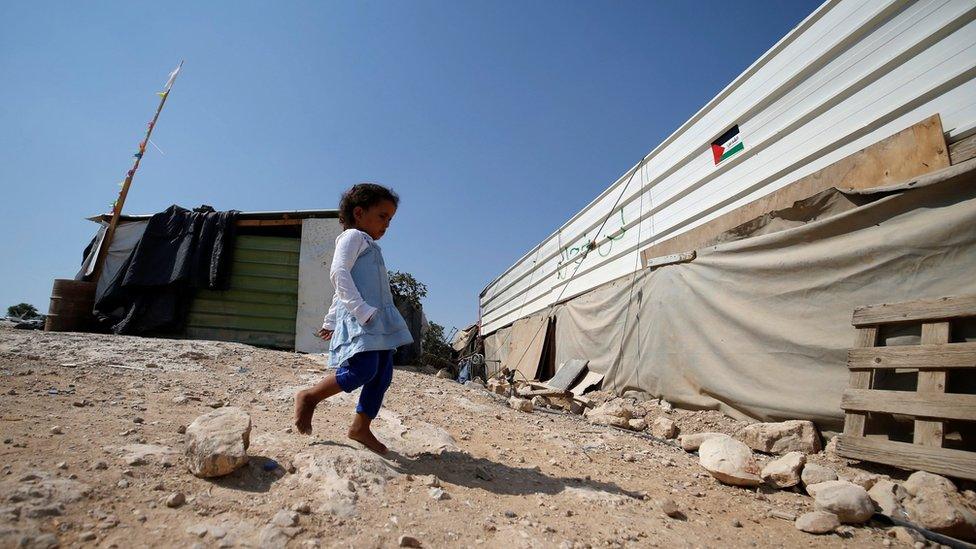
Khan al-Ahmar was established in the 1950s by members of a tribe from the Negev desert
Israel's Supreme Court has rejected appeals against the demolition of a Bedouin village in the occupied West Bank whose fate has been a subject of international concern.
Judges upheld an order to raze Khan al-Ahmar, where about 180 people live in shacks between two Jewish settlements.
Israel's government says the structures were built illegally, but Palestinians say permits are impossible to obtain.
An injunction against the demolition will expire within seven days.
The United Nations has called on Israel to allow the Bedouin to remain on the land, saying such demolitions are against international law.
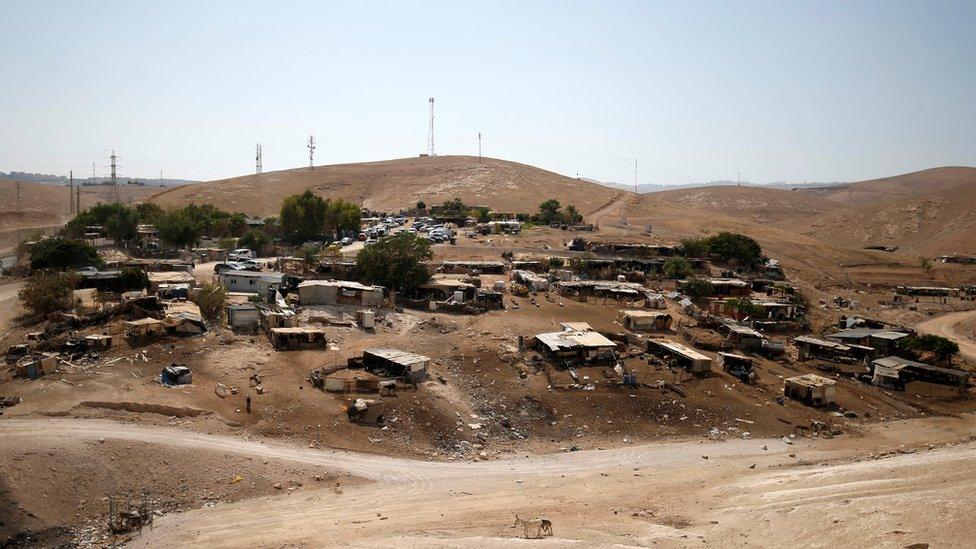
Israel's government says the structures were built illegally on state-owned land
Khan al-Ahmar, which is 8km (5 miles) east of Jerusalem, was established in the early 1950s by members of a semi-nomadic tribe the UN says was displaced from the Negev desert in southern Israel.
Israel did not recognise Khan al-Ahmar as a residential area after it occupied the West Bank during the 1967 Middle East war, and refused to connect the community to utilities like water and electricity.
Since 2009, residents have been fighting demolition orders issued for the wooden and corrugated iron shacks in which they live, as well as a clinic, mosque and an Italian-funded primary school.
The Israeli government said the structures were built on state-owned land without permits from the Israeli military which, under the 1993 Oslo Accords, has exclusive control over construction in the 60% of the West Bank known as "Area C".
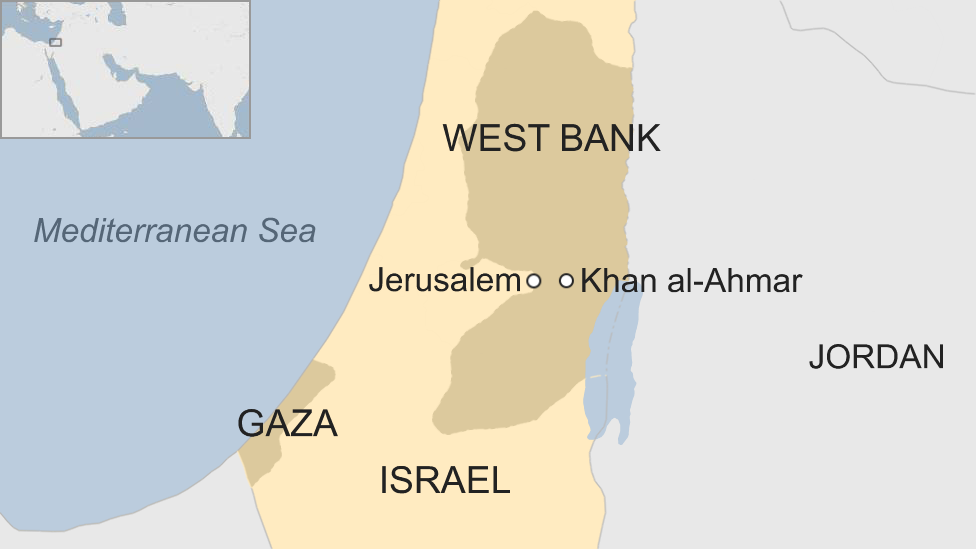
Palestinians complain that the Israeli military refuses the vast majority of Palestinian building requests and say they are left with little option except to build without permission.
In May, the Supreme Court rejected petitions to prevent the demolitions at Khan al-Ahmar and the relocation of its residents to a site designated by the Israeli government near the Palestinian town of Abu Dis.
After the Israeli military began preparations for the demolitions in July residents filed new petitions to the Supreme Court, external, including one asking for the original verdict to be overturned and another for the eviction to be delayed until they could find somewhere else to live.
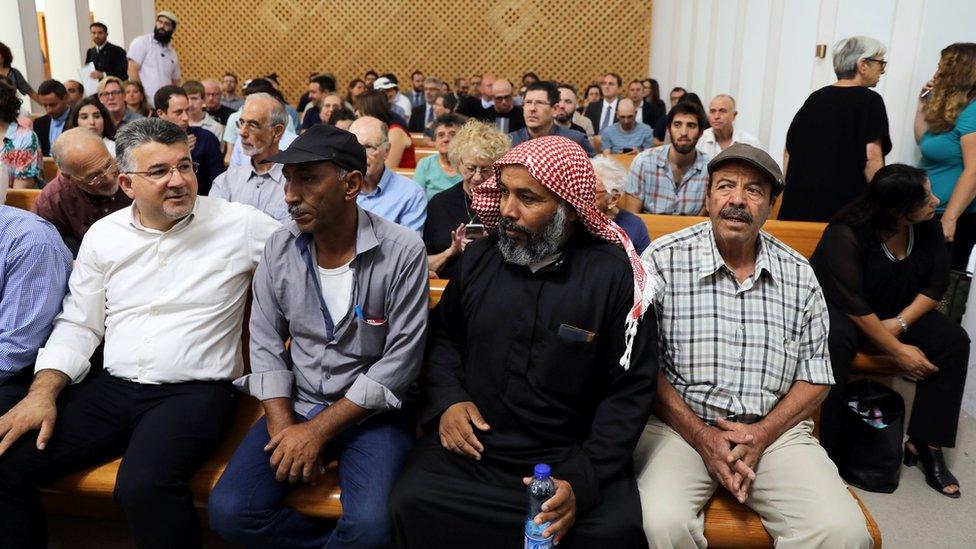
Khan al-Ahmar residents saw their appeals rejected
Israeli Defence Minister Avigdor Lieberman congratulated the court on Wednesday's ruling upholding the demolition order, which he said had come despite "the orchestrated hypocrisy of Abu Mazen [Palestinian Authority President Mahmoud Abbas], the Left and European states".
"Nobody is above the law, nobody will keep us from acting on our sovereignty and responsibility as a state," he added.
The head of the Palestine Liberation Organisation's human rights body, Ahmed al-Tamimi, warned Israel against proceeding with the demolition, calling it a "flagrant challenge to the whole world and a serious violation of the international humanitarian law and human rights".
The UN has previously warned that international humanitarian law requires an occupying power to protect the population of the territory that it occupies, external, ensure its welfare and wellbeing, as well as the respect for its human rights.
Allow X content?
This article contains content provided by X. We ask for your permission before anything is loaded, as they may be using cookies and other technologies. You may want to read X’s cookie policy, external and privacy policy, external before accepting. To view this content choose ‘accept and continue’.
Any destruction of property by the occupying power is prohibited, except when rendered absolutely necessary by military operations, the UN says. The extensive demolition of property is a grave breach of the Fourth Geneva Convention and may amount to a war crime, it adds.
Other than for the security of the population or imperative military reasons, international humanitarian law also prohibits the transfer of the population of an occupied territory without the genuinely and fully informed consent of the affected people, according to the UN.
Khan al-Ahmar is one of 18 Bedouin communities the UN considers being at risk of forcible transfer because they are located in or next to an area near East Jerusalem slated by Israel for Jewish settlement construction. The settlements are considered illegal under international law, though Israel disputes this.
- Published18 November 2019
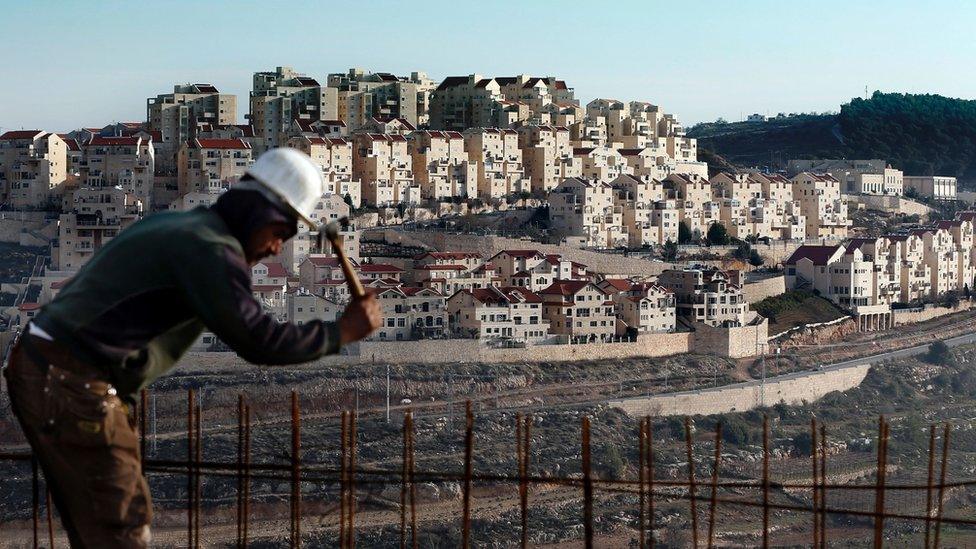
- Published18 January 2017
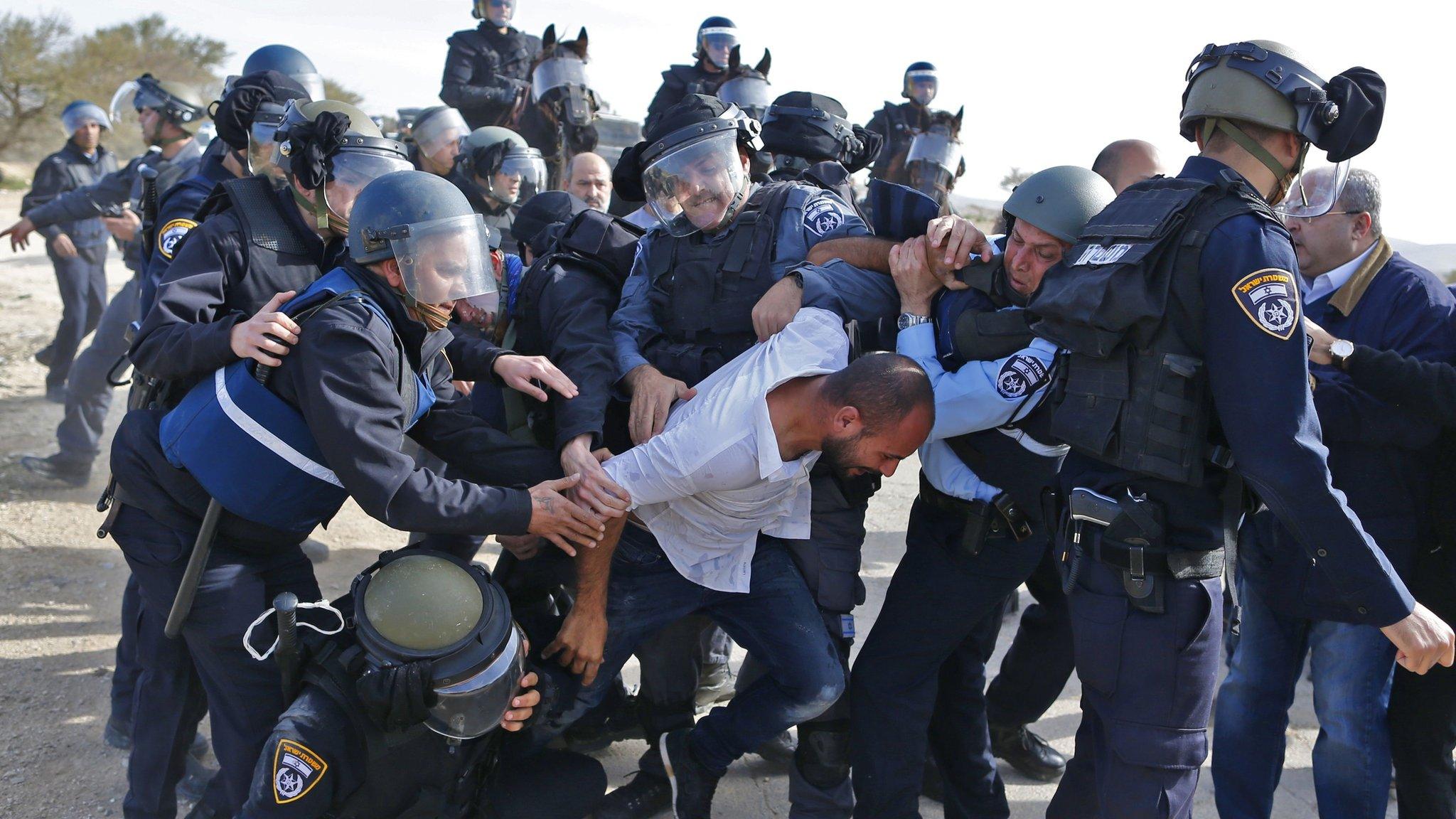
- Published17 January 2013
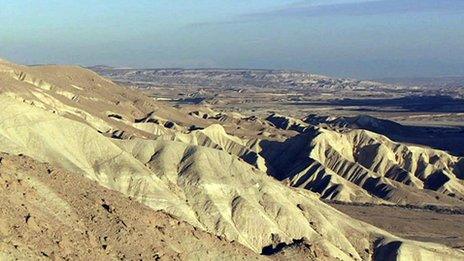
- Published18 October 2012
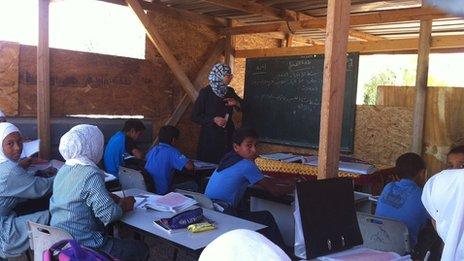
- Published11 November 2011
